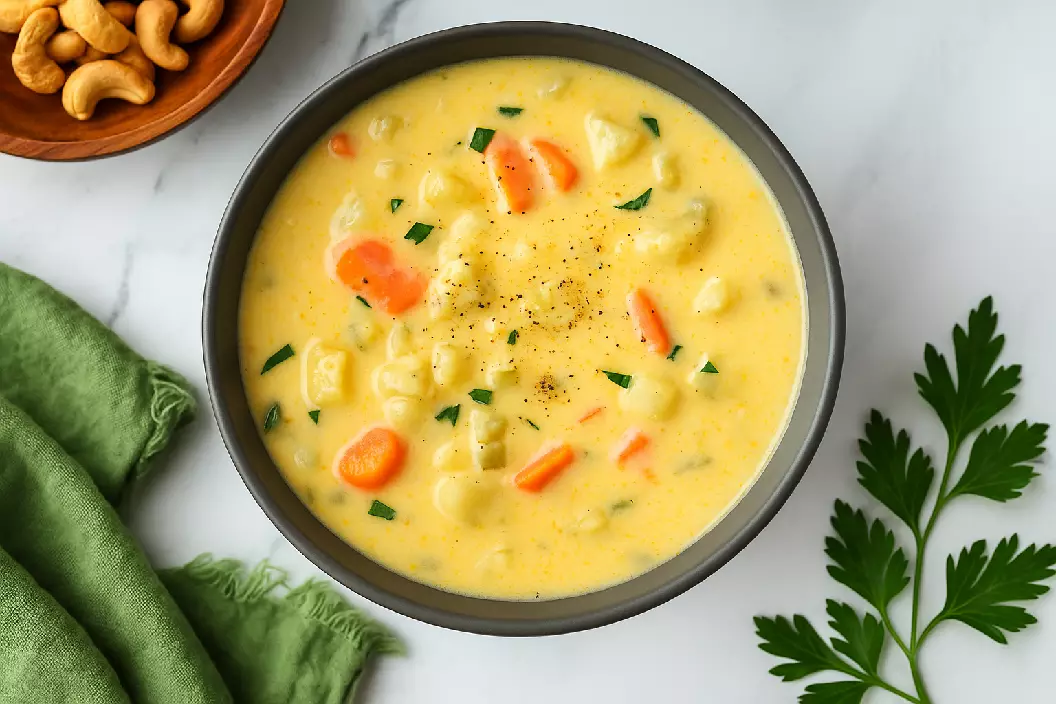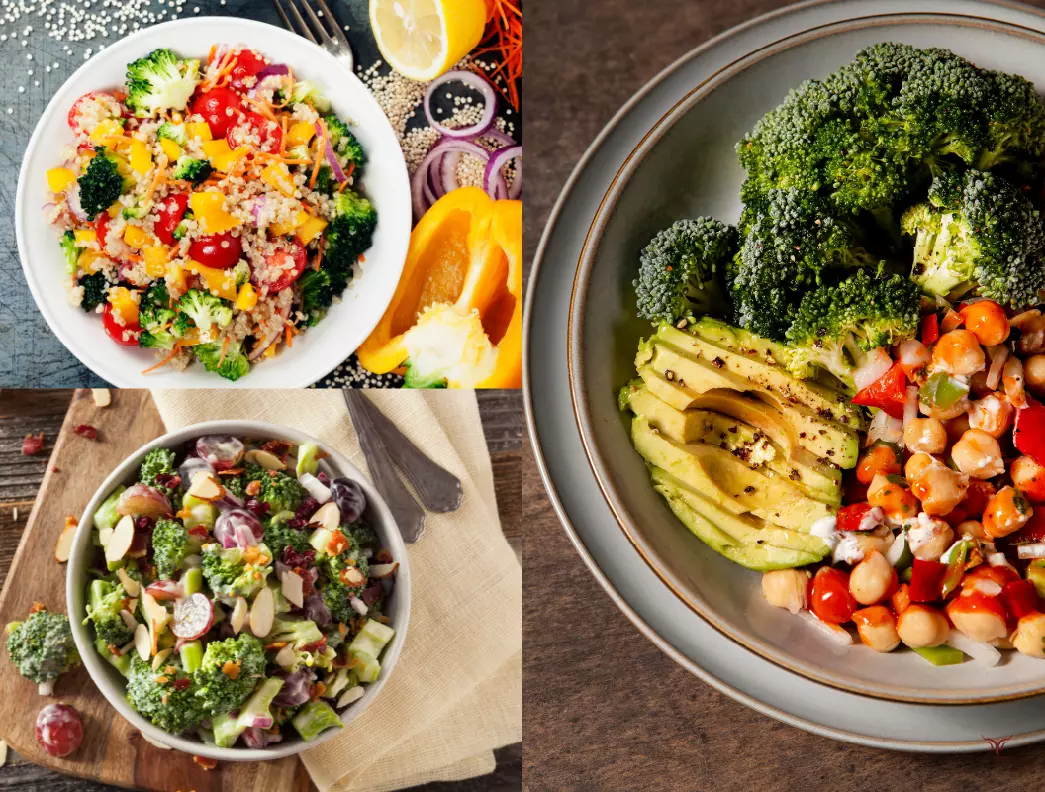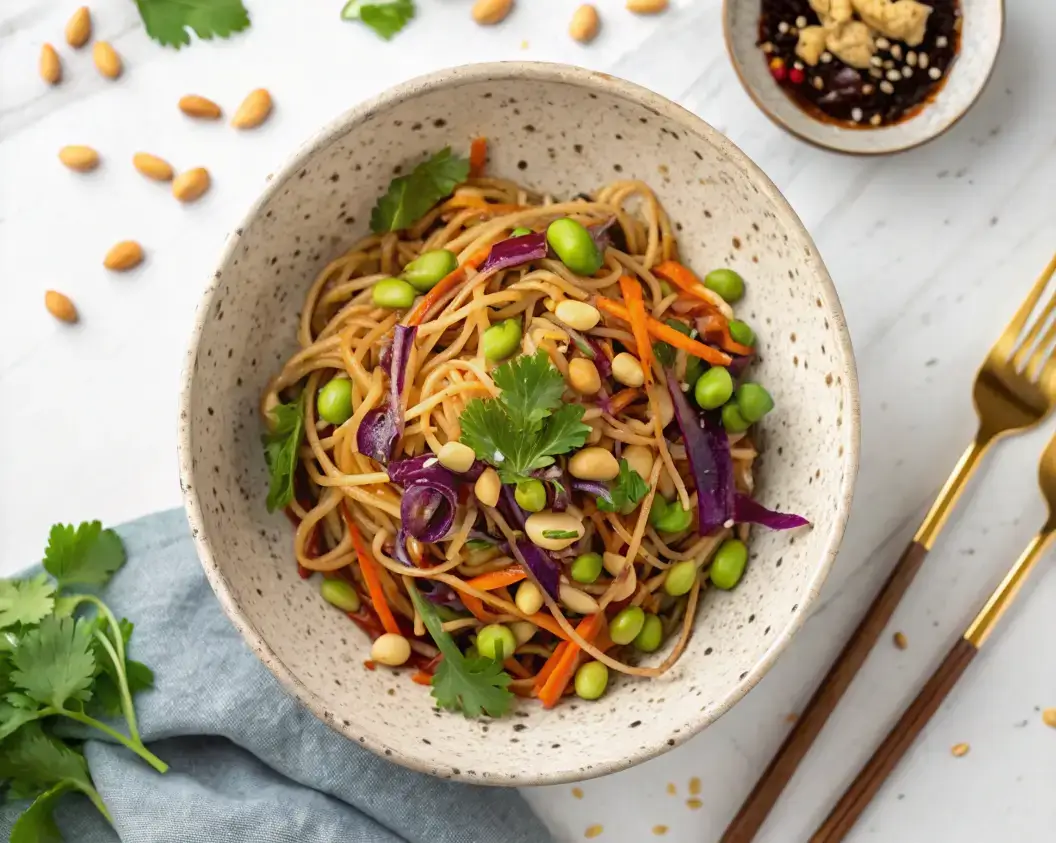Table of Contents
Imagine starting your day with a tasty vegan breakfast. It could change your morning and help you reach your health goals. Vegan eggs are a game-changer in plant-based breakfasts.
Breakfast is getting a makeover. More people are choosing vegan eggs for their health and the planet. These egg substitutes have 11g of protein, just like real eggs.
Vegan eggs are special because they’re gluten-free and safe for most allergies. They’re full of fiber, with 10g per serving. They also have iron and folate, thanks to ingredients like red lentils.
Whether you’re vegan, health-focused, or just trying new things, vegan eggs are exciting. They’re not just a trend but a smart choice for breakfast lovers today.
Vegan eggs are making waves in kitchens everywhere. Ready to join the breakfast revolution?
Understanding Plant-Based Egg Alternatives
Vegan egg substitutes have changed the way we cook with plants. They offer new ways to avoid traditional eggs. This change shows a big shift in what people eat and how they cook.
These plant-based eggs come from different ingredients. They try to match the taste, feel, and health benefits of real eggs. Companies are using new methods to make these substitutes.
Common Vegan Egg Substitutes
- Chickpea flour: A versatile base for many egg-free recipes
- Tofu scramble: A protein-rich alternative for breakfast dishes
- Mung bean protein: Used in commercial vegan egg products
- Black salt (kala namak): Provides an authentic egg-like sulfur flavor
How Plant-Based Eggs Are Made
Companies use special methods to make vegan egg substitutes. Brands like Just Egg and Simply Eggless use proteins from mung beans and lupin beans. They carefully process these proteins to get an egg-like feel and taste.
Key Ingredients in Vegan Eggs
The secret to good vegan egg substitutes is in their ingredients. Nutritional yeast, whole algal flour, and black salt are key. Together, they make a substitute that tastes, feels, and is as nutritious as real eggs.
| Ingredient | Function |
|---|---|
| Mung Bean Protein | Provides protein and texture |
| Black Salt | Adds sulfurous egg-like flavor |
| Nutritional Yeast | Enhances flavor and provides B vitamins |
Looking to make a tasty tofu scramble or need something to bind in baking? Vegan egg substitutes have got you covered. Thanks to food tech, these options are getting better and tastier all the time.
The Science Behind Vegan Eggs
Food scientists are working hard to make plant-based nutrition better. They’re finding new ways to make vegan eggs work like real eggs. This involves complex science and understanding proteins.
Looking into how vegan eggs are made shows us cool science. Researchers study how proteins in egg whites and silken tofu behave when cooked. This helps them make vegan eggs that taste and feel like the real thing.
- Protein Denaturation: Scientists study how plant proteins change structure when heated
- Gel Formation: Analyzing molecular interactions that create egg-like textures
- Nutritional Replication: Matching protein content and culinary performance
Here are some key ways vegan eggs are made:
| Technique | Primary Ingredients | Scientific Goal |
|---|---|---|
| Protein Extraction | Legumes, Algae | Replicate Protein Structure |
| Molecular Binding | Silken Tofu, Starches | Create Binding Properties |
| Flavor Optimization | Nutritional Yeast | Enhance Taste Profile |
Companies like Hampton Creek Foods are leading the way in vegan eggs. They use advanced science to make vegan eggs that are both tasty and nutritious. This shows how far we’ve come in making plant-based options that meet our needs.
Nutritional Comparison: Vegan Eggs vs Traditional Eggs
When looking at egg alternatives, knowing the nutritional facts is key. Vegan eggs and traditional eggs have different nutritional profiles. This can affect your health and wellness.
Protein is important when comparing these egg options. Traditional eggs have about 6.5 grams of protein per large egg. Vegan alternatives have 3 to 6 grams. Nutritional yeast can help increase protein in vegan eggs.
Protein Content Breakdown
- Traditional eggs: 6.5 grams protein per large egg
- Vegan egg alternatives: 3-6 grams protein
- Supplemental protein sources: Nutritional yeast, legume-based proteins
Caloric Insights
Vegan and traditional eggs have different calorie counts. Vegan eggs often have more carbs, leading to slightly more calories. A cooked traditional egg has about 70 calories. Vegan eggs have 50-80 calories, depending on ingredients.
Nutrient Profile Comparison
Saturated fat content is a big difference. Traditional eggs have cholesterol and saturated fats. Vegan eggs are cholesterol-free. Vegan eggs are often fortified with vitamins and minerals to match traditional eggs.
| Nutrient | Traditional Eggs | Vegan Eggs |
|---|---|---|
| Protein | 6.5g | 3-6g |
| Saturated Fat | 1.6g | 0-1g |
| Calories | 70 | 50-80 |
Choosing between vegan and traditional eggs depends on your nutritional needs and health goals. Both have unique benefits. Knowing their nutritional differences helps you make the best choice for your diet.
Environmental Impact of Choosing Vegan Eggs
Your food choices have a big impact on the environment. Plant based egg alternatives are a green choice. They cut down on carbon footprints and lessen environmental harm.
Vegan eggs bring big environmental wins. Animal farming causes 18% of global greenhouse gas emissions. This is more than all transportation emissions. Choosing vegan eggs for breakfast can make a big difference.
Key Environmental Advantages
- Reduced water consumption
- Lower land use requirements
- Decreased greenhouse gas emissions
- Minimized deforestation risks
Here are some amazing facts about plant-based food production:
| Resource | Traditional Eggs | Vegan Eggs |
|---|---|---|
| Water Usage | 500 gallons per pound | 39 gallons per pound |
| Land Requirement | High | Significantly Lower |
| Carbon Emissions | High | 50% Reduction |
Choosing vegan eggs is more than just a healthy breakfast. It’s a step towards a greener world. It helps reduce environmental stress and supports better food systems.
How to Cook With Vegan Eggs
Exploring vegan egg alternatives opens up a world of culinary possibilities. Whether you’re creating a delicious tofu scramble or experimenting with baking, plant-based eggs offer versatile cooking options. They can transform your kitchen experience.
Mastering Scrambling Techniques
To create the perfect tofu scramble, start with a high speed blender for a smooth texture. Break the tofu into small crumbles and season with kala namak (black salt) for an egg-like flavor. Here are some cooking tips:
- Heat a non-stick pan over medium heat
- Add 1-2 tablespoons of oil
- Cook for 3-4 minutes, stirring frequently
- Season with turmeric for color and additional flavor
Baking with Vegan Egg Recipes
Vegan egg alternatives excel in baking. A typical vegan egg recipe can replace traditional eggs with simple substitutes. For each egg, use 1 tablespoon of flax meal mixed with 2 tablespoons of water.
| Baking Replacement | Quantity | Best Used For |
|---|---|---|
| Flax Meal Mixture | 1 tbsp + 2 tbsp water | Cookies, Muffins |
| Silken Tofu | ¼ cup | Cakes, Quiches |
| Chia Seeds | 1 tbsp + 3 tbsp water | Dense Breads |
Recipe Modification Strategies
Adapting traditional recipes to vegan egg alternatives requires some experimentation. Keep these tips in mind when modifying your favorite dishes:
- Adjust liquid content by adding 1-2 tablespoons of water
- Reduce baking temperature by 25 degrees
- Increase cooking time by 5-10 minutes
- Use additional binding agents like agar or cornstarch
The Taste and Texture Experience

Exploring vegan eggs is a journey that changes how we think about taste. Your first bite might surprise you with flavors that go beyond what you expect. Black salt (kala namak) is a key ingredient that adds a unique sulfur taste, just like real eggs.
Companies have worked hard to make plant-based eggs taste and feel like the real thing. They’ve made big strides in:
- Using black salt to give eggs a more egg-like flavor
- Improving the texture to match traditional eggs
- Reducing any beany or grassy tastes
Different brands of vegan eggs have their own taste. Some try to be just like real eggs, while others celebrate their plant-based uniqueness. Kala namak is a big part of this, adding a special sulfur taste that many love.
More and more people want to try plant-based products. About 71% of consumers are interested, which encourages companies to keep improving. Whether you’re vegan or just curious, the world of vegan eggs is full of new tastes to explore.
Health Benefits of Plant-Based Eggs
Exploring vegan eggs can change your breakfast game. They bring health perks and are a smart choice for those looking to cut down on saturated fats. They’re a great way to eat healthier.
Cholesterol-Free Nutritional Profile
Vegan eggs are good for your heart. They don’t have cholesterol, unlike regular egg whites. Studies show they can help keep your heart healthy and might even lower heart disease risk.
- Zero cholesterol content
- Lower saturated fat compared to traditional eggs
- Supports heart health
Digestive Wellness Benefits
Vegan eggs have more fiber than regular eggs. Fiber is key for a healthy gut. It helps with digestion and keeps your gut balanced. So, vegan eggs are great for your digestive health.
Allergy-Friendly Alternative
For those with egg allergies, vegan eggs are a safe choice. They’re free from common allergens and packed with nutrients. They fit well into many diets, making them flexible for different eating needs.
- Safe for individuals with egg allergies
- Suitable for multiple dietary preferences
- Nutrient-dense alternative to traditional eggs
Choosing vegan eggs means you can enjoy tasty, healthy breakfasts. They support your nutritional goals and are good for you.
Popular Brands and Market Options
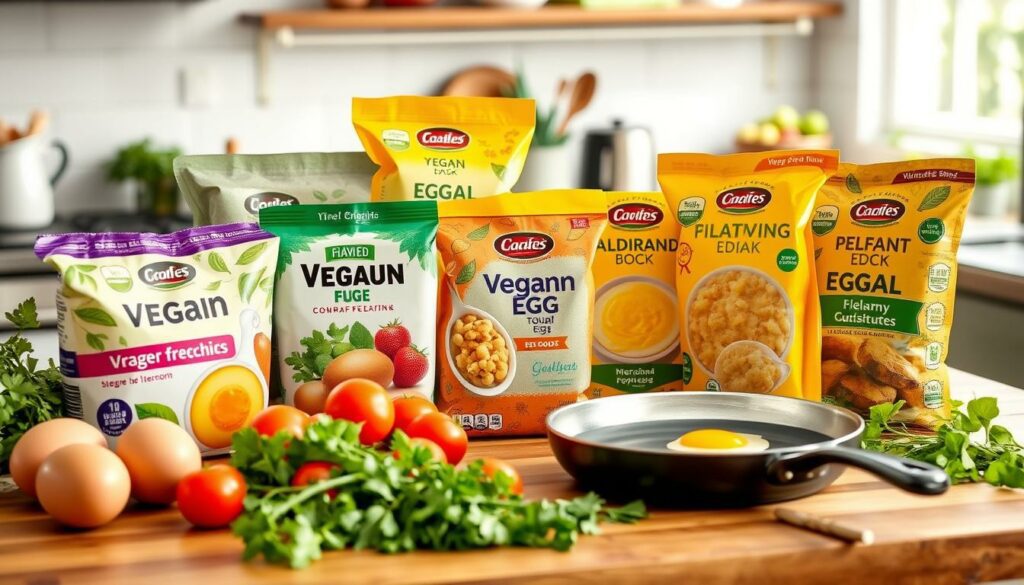
The vegan egg substitutes market has grown a lot. Now, it’s easier than ever to find egg alternatives. Just Egg is a big name, having sold the equivalent of over 500 million chicken eggs.
Many brands offer different solutions for those who love to cook and try new things:
- Just Egg: Made from mung bean protein, it’s a liquid egg replacement.
- AcreMade: It’s an egg substitute that’s free from the top nine allergens.
- Yo Egg: It’s made from soy and chickpeas, with special formulas.
- Crafty Counter’s WunderEgg: It’s the first mass-market vegan hard-boiled egg substitute.
The market is growing fast. By 2033, it’s expected to hit USD 3,569.1 million, growing at 10.4% each year. Right now, North America makes up 48.3% of the market.
When looking for vegan egg substitutes, you’ll find many choices. In 2023, powdered vegan eggs were the most popular, used by over 69.5% of the global market. They’re great for baking and cooking.
There’s always something new in the plant-based egg world. They’re making vegan hard-boiled, fried, and poached eggs that taste and feel like the real thing.
Cost Comparison and Accessibility
Looking into vegan breakfast options, it’s key to know the cost and how easy to get vegan eggs. The market for plant-based eggs is booming. North America is expected to grow by 40% in the next few years.
Here’s what we found about the prices of vegan eggs:
- Vegan egg substitutes cost more than regular eggs
- Yumgo egg substitute powders are about 1/3 the price of real egg powders
- More production could lower prices in the future
Several things affect the price of vegan eggs:
- Expenses for research and development
- The cost of special ingredients
- Lower production compared to traditional eggs
- Growing demand in new markets
Vegan eggs are getting easier to find in:
- Health food stores
- Big supermarket chains
- Online shops
- Special sections in grocery stores
In 2023, 15% of U.S. homes bought plant-based meat and seafood. And 62% of them bought it again. This shows more people are open to trying vegan eggs and other alternatives.
Common Challenges and Solutions
Starting with egg replacements can be tough for new cooks. Knowing how vegan egg alternatives work helps solve cooking problems. Silken tofu and other substitutes need special techniques for the best results.
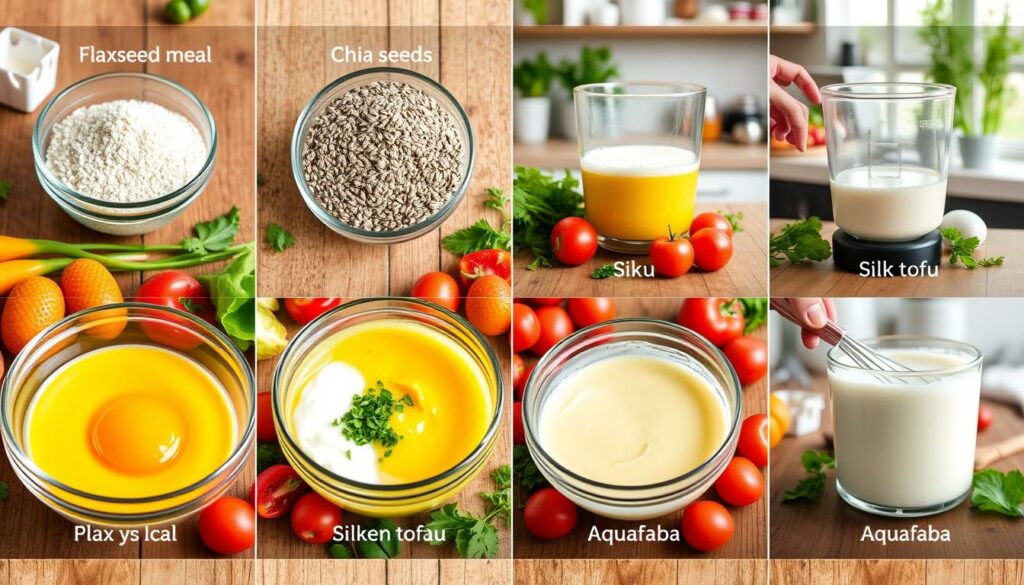
- Managing different cooking behaviors
- Addressing possible off-flavors
- Matching protein content of traditional eggs
- Achieving desired texture and consistency
Culinary experts suggest ways to improve your vegan egg cooking. Onion powder can hide unwanted tastes in egg substitutes. Mixing silken tofu with nutritional yeast adds a rich flavor, like real eggs.
Here are some tips to boost protein in vegan egg dishes:
- Add high-protein ingredients like chickpea flour
- Use silken tofu as a base for scrambles
- Add nutritional yeast for extra flavor and nutrients
- Try different egg replacement brands
Adjusting temperature and cooking time is key with egg replacements. Use lower heat and cook slower to avoid texture problems. With practice and patience, you’ll get better at vegan egg cooking.
Conclusion
Your journey into vegan eggs shows a new way to eat and care for the planet. Plant-based egg substitutes are great for those who want healthy food without animal products. They have lots of protein, like chickpea flour-based ones with 14 grams per 100 grams.
These vegan eggs are also good for the environment. Traditional egg farming uses a lot of resources and can be harsh on animals. Vegan eggs are a kinder choice that helps the planet and animals.
Exploring vegan eggs can make cooking fun and exciting. You can make scrambles and baked goods quickly. They’re not just a trend; they’re a smart choice for a healthier lifestyle.
Food technology is getting better, and vegan eggs are leading the way. They’re perfect for anyone who cares about health, the planet, or just wants to try new things. These alternatives are tasty and good for you.
FAQ
What exactly are vegan eggs?
Vegan eggs are made from plants, like chickpea flour or tofu. They taste and cook like real eggs but don’t come from animals.
How do vegan eggs compare nutritionally to regular eggs?
Vegan eggs might be better than real eggs in some ways. They’re often cholesterol-free and can have more nutrients. But, it really depends on the brand and ingredients.

Vegan Eggs: Amazing Benefits You Need to Discover Today
Ingredients
- Chickpea flour
- Tofu
- Mung bean protein
- Black salt Kala Namak
- Nutritional yeast
- Turmeric
- Flax meal
- Chia seeds
Instructions
- Scrambling tofu with seasonings
- Using flax meal or chia seeds as egg replacements in baking
- Blending ingredients to create a liquid egg substitute
Notes
- Vegan eggs are cholesterol-free and rich in fiber.
- Best used for scrambles, baking, and as an egg replacement in various dishes.
Rate this recipe and share your results!
There are no reviews yet. Be the first one to write one.


